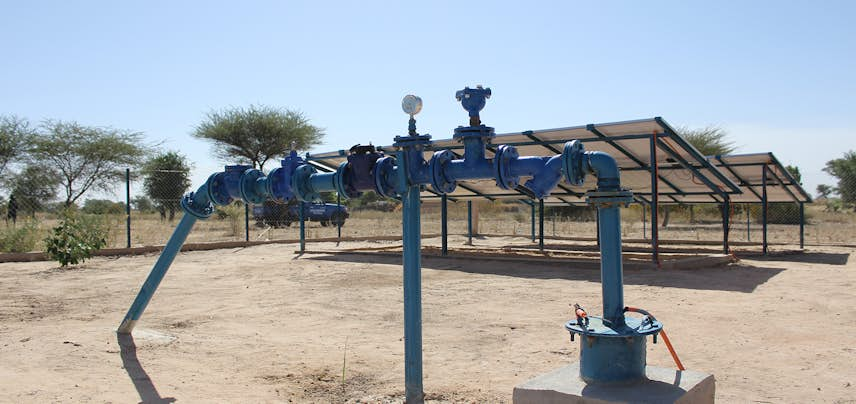Environment & climate change
The major global environmental changes, and in particular climate change, loss of biodiversity and desertification, are adversely impacting the human and natural systems on which human well-being and economic activities are based. They will continue to influence countries’ development conditions. These changes constitute threats and a major challenge for societies in their ability to meet basic human needs, promote justice, peace and security and pursue sustainable growth and development.
Environment and climate issues are therefore a key element of the overall aim of the Luxembourg Development Cooperation general strategy, and one of the three cross-cutting issues on which its actions focus. In line with the additionality of international climate financing provided for in the government’s coalition agreement, it is more vital than ever to strengthen and optimise the incorporation of the environment and climate change within cooperation activities.
In 2021, the Luxembourg Development Cooperation’s new environment and climate change strategy was presented. It is aligned with its central remit of poverty eradication, and is the result of a lengthy consultation process that fully involves development cooperation partners.
Under this strategy, the Luxembourg Development Cooperation aims to frame all its activities and/or aid within sustainable, inclusive, renewable or low-carbon development dynamics that are resilient to the effects of climate and environmental change, in accordance with international environmental conventions, Agenda 2030 and the Paris Agreement goals.
2022 saw progress in the implementation of the new gender and environment/climate strategies. An operational action plan has been defined, with the key actions to be carried out by the Luxembourg Development Cooperation and its partners in the medium term to ensure the strategy is properly deployed. Tools have also been developed for the implementation of the action plan internally and by the main partners of the Luxembourg Development Cooperation: an internal tool at the Ministry of Foreign and European Affairs, LuxDev’s operational guides, the gender, environment and climate guide of the NGDOs and thematic fact sheets on the interrelations between gender, environment and climate change.
Specifically, this enhanced integration of environment and climate was applied in 2022 in various fields. For example:
- environment and climate change were identified as priority areas for cooperation in the new bilateral partnerships with Rwanda, Benin and Costa Rica;
- the European Microfinance Platform (e‑MFP) received specific support for the Green Inclusive and Climate Smart Finance Action Group to record existing green projects and identify and disseminate good practice and innovative practices in green inclusive finance;
- the whole-of-government approach was strengthened on these themes with the signing of an agreement between the Ministry of Foreign and European Affairs, the Ministry of the Environment, Climate and Sustainable Development and the Ministry of Finance to establish a trust fund for sustainable finance instruments. The proposed intervention offers a new approach to addressing the development financing gap in Global South countries by leveraging the potential of the capital market to promote sustainable development, including climate change mitigation and adaptation, putting in place policy incentives and risk reduction measures to direct bond proceeds towards sustainable, inclusive and resilient low-carbon initiatives and projects.
In 2022, the Directorate for Development Cooperation and Humanitarian Affairs was part of Luxembourg’s delegation to the COP27 of the United Nations Framework Convention on Climate Change in Sharm El Sheikh. Many bilateral discussions were held at COP27 with the delegations from Luxembourg’s partner countries and organisations, in order to strengthen political dialogue on environmental and climate change issues.
The Luxembourg Development Cooperation has also continued its involvement in the interministerial management committee of the Climate and Energy Fund (CEF), chaired by the Ministry of the Environment, Climate and Sustainable Development, whose remit includes the multiannual planning of CEF expenditure and the drafting of opinions and, where appropriate, recommendations concerning the financing of eligible investments.
